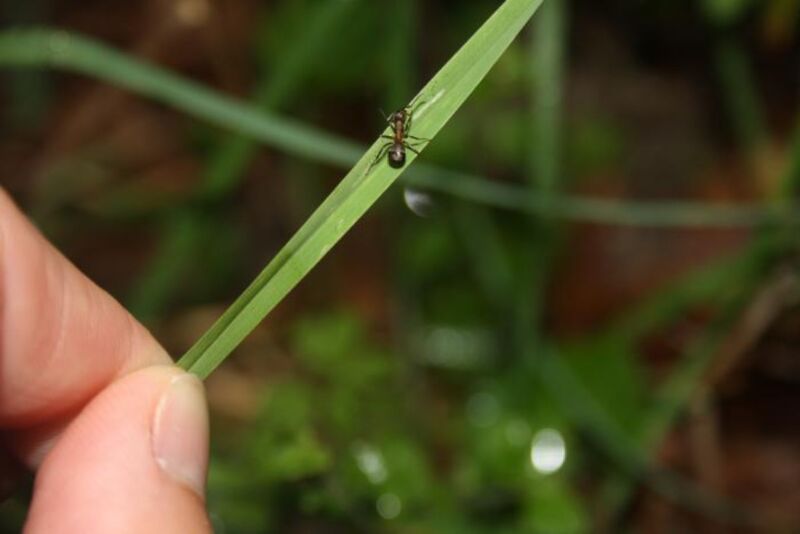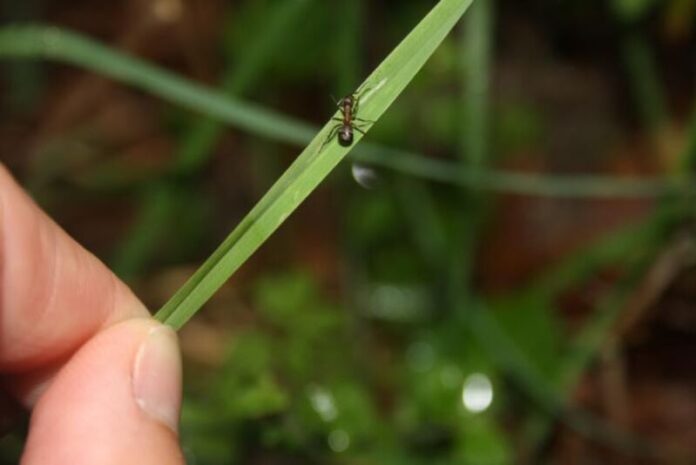
Enlarge / An ant infected by the lancet liver fluke climbs up and clamps its powerful jaws onto the top of a blade of grass, making it more likely to be eaten by grazers such as cattle and deer. (credit: University of Copenhagen)
Parasites that control and alter the behavior of their hosts are well-known in nature. Most notably, there is a family of zombifying parasitic fungi called Cordyceps—more than 400 different species, each targeting a particular insect species, whether it be ants, dragonflies, cockroaches, aphids, or beetles. In fact, Cordyceps inspired the premise of The Last of Us game and subsequent TV series. And earlier this month we reported on a study of how a parasitic worm (trematode) targets a particular species of marsh-dwelling brown shrimp (amphipod), turning the shrimp an orange hue and altering the host shrimp's behavior.
Then there's the lancet liver fluke, whose complicated life cycle relies on successfully invading successive hosts: snails, ants, and grazing mammals. (Some liver flukes have also been known to infect the occasional unfortunate human.) Scientists at the University of Copenhagen in Denmark have discovered that the way the liver fluke "zombifies" ants to alter their behavior incorporates a kind of "on/off" switch that, in turn, is dependent on temperature. The researcherse described their findings in a recent paper published in the journal Behavioral Ecology.
"Historically, parasites have never really been focused on that much, despite there being scientific sources which say that parasitism is the most widespread life form," said co-author Brian Lund Fredensborg. "This is in part due to the fact that parasites are quite difficult to study. Nevertheless, the hidden world of parasites forms a significant part of biodiversity, and by changing the host's behavior, they can help determine who eats what in nature. That's why they're important for us to understand."
Read 6 remaining paragraphs | Comments
Ars Technica - All contentContinue reading/original-link]




